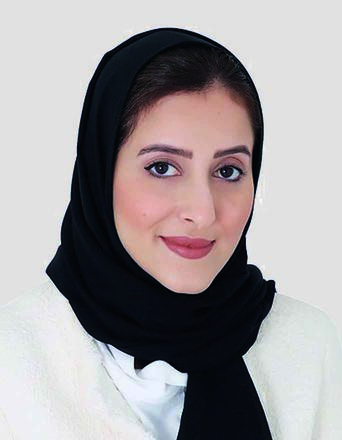Bahrain central bank backs fintechs to boost FDI
The Central Bank of Bahrain’s Yasmeen Al-Sharaf on how the country is exploiting its financial services history to become a regional leader in digital technology.
Not only was Bahrain the first country in the Arabian Gulf to discover oil, it was also among the first in the region to begin diversifying its economy away from a reliance on oil revenues, given the relatively small size of its reserves compared with its peers. In recent years, digital technology has been the main focus of the country’s efforts to attract inward investment, spearheaded by the Bahrain Economic Development Board (EDB).
“Much of the EDB’s foreign direct investment success [in recent years] is owed to ongoing digitalisation efforts, which have seen significant technological advances in everything from our traditional banking sector to our customs processes,” says Mahmood Al Aradi, the EDB’s co-chief investment officer.
Yasmeen Al-Sharaf, head of the Central Bank of Bahrain’s (CBB’s) fintech and innovation unit, spoke to The Banker about how Bahrain is competing with other regional fintech hubs, and the outlook for sharia-compliant cryptoassets within the region.
Q: A number of fintech ecosystems in the Gulf Co-operation Council (GCC) are competing for regional business. What advantages does Bahrain have in attracting companies?
A: Bahrain boasts the region’s oldest and most established financial services sector, which is also — at 17% — our largest non-oil contributor to gross domestic product (GDP). We have been leveraging this financial services expertise to foster one of the region’s most dynamic, supportive and collaborative fintech ecosystems.
Nearly 400 financial institutions call Bahrain home today, and the local ecosystem is constantly evolving. Currently, we have 24 companies operating in our fintech regulatory sandbox to develop and test their solutions. We have granted licences to several fintech companies, including payment service providers and one crowdfunding licensee.
We are home to region’s first and largest fintech hub, the region’s first onshore fintech regulatory sandbox, and our single financial regulator, the CBB, works closely with fintechs operating in the country to develop flexible, comprehensive and often pioneering regulation for the most cutting-edge emerging technologies, including open banking, cryptoassets, robo-advisory and crowdfunding.
Currently, we have 24 companies operating in our fintech regulatory sandbox to develop and test their solutions.
Recent exciting enhancements to the ecosystem include the launch of FinHub 973, a fintech platform that provides traditional banks and fintechs with a virtual space to partner and collaborate, and the Bahrain Open Banking Framework. [The framework] provides comprehensive, detailed guidelines for open banking and is the first of its kind in the world to incorporate Islamic finance guidelines.
Ultimately, Bahrain offers global and regional fintechs a testbed — a virtual and physical space to test their technologies and solutions — before scaling across the GCC, which has a combined GDP of $1.5tn.
Q: The CBB launched FinHub 973 in October 2020. What role will this initiative play within the country’s overall fintech strategy and how will it operate alongside existing centres, such as FinTech Bay?
A: FinHub 973 enables fintech firms to connect directly with established institutions, helping them to find funding opportunities and test out new solutions before going to market. The platform acts as a springboard for a wave of new fintechs by bringing together the country’s existing initiatives with new offerings in a single one-stop shop.
Central to the digital lab is the cloud-based FinX22 platform, which lets fintech start-ups develop, test and deploy their solutions in an open application programming interface (API) sandbox. After connecting through a single API, developers can pull sample data and build more than 300 functionalities into their apps, enabling users to do everything from accessing account data to initiating payments.
Another key part of FinHub 973’s offering is a streamlined process for start-ups to apply to the CBB’s regulatory sandbox. Home to dozens of companies across the Middle East and north Africa (MENA) and further afield, the sandbox allows for the testing of solutions in a live environment with volunteer customers under the regulators’ supervision.
Q: The CBB in January issued a licence to CoinMENA, one of the region’s first sharia-compliant cryptocurrency exchanges. What is the outlook for this sector within the MENA region?
A: Islamic finance is a major part of the global economy, with more than $2.5tn in assets recorded. The question in the Middle East isn’t whether Islamic finance principles need to evolve, but instead how digitalisation can enable this system to thrive and grow. We are continuously implementing new initiatives to further our offering in this area.
This includes the fintech sector, with some scholars suggesting that cryptoassets could be the purest form of Islamic finance, since the assets are not based on debt. There are so many opportunities for utilising fintech within Islamic finance and regulators should pay close attention to the potential of modern Islamic finance as a catalyst for fintech, and vice versa.



